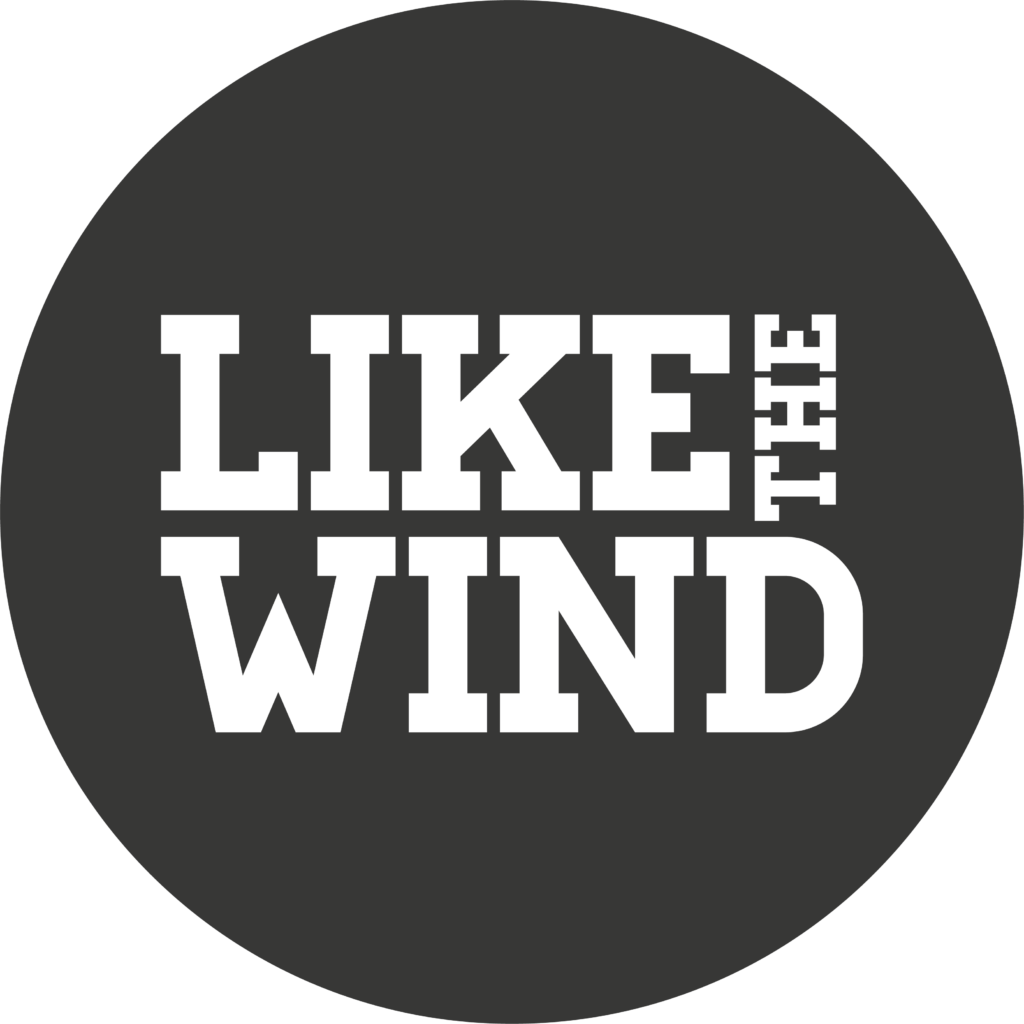Border crossings
Words and Photography by Gavin Boyter
This story first appeared in issue #18 of Like the Wind
On 13 May 2018 I became, briefly, an illegal immigrant in Romania.
A stern and professionally displeased border patrol officer shook his head at my proffered British passport and sent me back the way I’d run. “No Schengen,” he insisted. I ducked back under the insubstantial metal barrier separating Hungary from Romania on Aradi Utca and called my girlfriend (and support driver) for a lift to a legal border crossing point. Aradhna apologised profusely to the border officials who had just handed back her documents to let her into Romania and did a U-turn back into Hungary to pick me up and drive back through the checkpoint for a second time (cue more bemusement), then round to the other side of the striped horizontal pole and empty checkpoint booth to continue my epic run. This time, the Romanian police officers were wryly amused as the truth dawned.
“Ah… sport,” one of them nodded sagely, as if this one word explained all my eccentricities. I was attempting to run from Paris to Istanbul, following the route of the original 1883 Orient Express.
It had been Aradhna’s idea, born as she waited with impressive patience for me to have my Dean Karnazes book signed by the legendary ultra-runner himself. What epic feat would be a worthwhile follow-up to my JOG-LE of 2015, about which I’d recently written a book, Downhill From Here? What sort of trip would she consider making with me if it entailed living in a camper van for several months and supporting me as I ran up to 30 miles a day? Fortunately, a journey that took in eight countries and passed through cities as vibrant as Paris, Munich, Vienna, Bucharest and Istanbul held as much appeal for my girlfriend as it did for me.
“Ah… sport,” the police officer nodded sagely, as if this one word explained all my eccentricities
Traversing Europe from west to east would mean crossing many borders.
As well as the aforementioned accidental trespass into Romania, I’d encounter disused but still fearsome-looking pre-EU checkpoints on the road heading from Hungary into Slovakia and receive an impromptu police escort as we crossed from Bulgaria into Turkey. The latter came about as I jogged past what I thought was a derelict observation booth, only to be accosted by two stony-faced Bulgarian officers with rifles and an Alsatian who looked like he’d like to have one of my legs for lunch. When I admitted that I didn’t have my passport, but my girlfriend was parked just before the border post and could provide it, the officers went back into the booth to consult with a superior on the phone, then decided to walk with me to check out my story – or possibly just to enliven an otherwise tedious day. They seemed good-natured; I half-joked that they might jog with me, but they were not to be hurried and when I asked if their dog would pursue me if I ran, I received a highly affirmative “oh yes”, with the implication that this would be a fun outcome for only one of us. I kept to a brisk walking pace instead.
I had become used to potholed roads, lunatic drivers and regular attacks by feral dogs
Most of the crossings were a lot less eventful. The transition from Germany into Austria at Salzburg was marked only by the sight of several border control officers spot-checking cars heading west (there was no corresponding activity in the other direction). I staggered on unimpeded. My arrival in Hungary, running along a sun-baked flood dam by one of the Danube’s tributaries, was marked by a tiny green, yellow and orange flag, a circular metal plaque in the ground and, more impressively, a tumbling flight of swifts, wheeling acrobatically in protest at my incursion into their domain.
The crossing into Bulgaria at Silistra took place on a boat. A passenger ferry over the Danube delivered us into yet another country. The river visits 10 nations on its 1,770-mile journey to the sea, going two better than me in terms of border crossings, although I meandered for 530 more miles. In Silistra, I swapped Latinate letters for inscrutable Cyrillic, and Romanian forests for Bulgarian pavements and Soviet-era housing blocks.

I felt the change in nations heading into Turkey in a way that surprised me. After almost 900 miles run in the former Eastern Bloc, I had become used to potholed roads, lunatic drivers and regular attacks by feral dogs – as well as a surprising openness, curiosity and kindness in the people we’d met throughout Bulgaria and Romania. Once we’d queued and waited patiently to cross into Turkey, I was surprised to see that a wide, curving boulevard lay before me, with hard shoulders wider than some of the B-roads I’d followed. When these roads were built, Turkey had evidently been anticipating many more visitors; I was just grateful for the additional space between me and the trucks.
I’d started this challenge with the half- baked notion of showing solidarity for a European continent Britain seemed determined to leave. Four thousand kilometres would surely help me to get to know the region in which I felt Britain most properly belonged. In fact, what I found was a mess of contradictions – well-travelled Austrian farming families and retired Dutch holidaymakers who spent half their year in Hungarian campsites while convinced that Britain was showing a heroic stance against Eurocratic tyranny by withdrawing from the EU. I never quite found the unified continent I’d hoped to. But that didn’t matter – Europe’s notion of free passage across internal borders really worked; I ran across eight nations largely unimpeded.
There were other borders too, even less well-defined, but ones I had to cross nonetheless. When does a holiday in a self-built campervan become a lifestyle, or even a life? After five months on the road (112 days for the run plus 37 spent slowly ambling back to Blighty) this no longer felt like a temporary state of being. I’d become a stateless transient, huffing along the highway or exploring desolate forest trails (which quite often seemed to involve detours via tangled paths and defunct roads no human had used in decades). Then there was the border between ultra-running and whatever lies beyond. When you run a 100-mile race, or even an epic challenge like the Marathon des Sables, there is a defined route and an end time you can generally predict within a 10 percent margin of error. Run 112 days straight (bar the odd day off for good behaviour or horrible injury) and something odd happens to the body and mind. Both adapt to extreme mileage as a new status quo. When I finally stopped running and arrived at the jewelled city of legend (if the Bosporous is a necklace around a continent, Istanbul must be its solitaire), my body reacted to stopping by largely collapsing.
Utter fatigue could no longer be countered by enforced forward movement. I had no idea what, when or how much to eat and my guts reacted violently. Nausea and flu-like symptoms descended and I struggled to leave our hotel room for three days. I had crossed a dangerous horizon, my body said vociferously, and there would be consequences.
When does a challenge become an adventure? Perhaps when you set aside the maps and desire to break records and run on instinct and curiosity. When I ran the length of Britain my eventual distance (1,174 miles) was more than 30 percent longer than the optimal route, very deliberately (bar the odd accidental deviation). I wanted to see the best of what my country had to offer and face down some of its toughest long-distance routes. That was an adventure; this European trip would be too. I’d crossed that particular border (of expectation and motivation) when my forties dawned and my speed diminished. Stamina and a desire to explore would substitute and more than compensate for slower race times.
The final, lifelong borderline I crossed was found on an Istanbul rooftop restaurant at sunset on 3 July 2018. The waiter, smiling, put down the dessert plate, around the rim of which I’d had the chef write in chocolate sauce: Benimle Evlenir Misin? A few moments of nervous Google translation later, Aradhna giggled and I had my answer. A sapphire sealed the commitment and I passed fully into adulthood (or so it felt). In a moment worthy of Hollywood, the guests and staff applauded and I had my finish- line moment, in contrast to the rather subdued finish we’d shared three days earlier at the city’s Sirkeci station.
Crossing borders can be scary, unpredictable – even disappointing – but you always get something new and valuable from the experience. I know there will be fearful crossings to come but to quote a piece of wisdom from a source that the internet identifies, perhaps fittingly, as “anonymous”:
Man made borders not to limit himself, but to have something to cross.
Gavin Boyter is an ultra-runner, film-maker and author of Downhill From Here, who lives in London but yearns for Scottish mountains. www.runningtheorient.com
If you’ve enjoyed this story, please consider supporting us with a Like the Wind subscription
We’re publishing some of our favourites stories here on the blog to help lift runners’ spirits.


